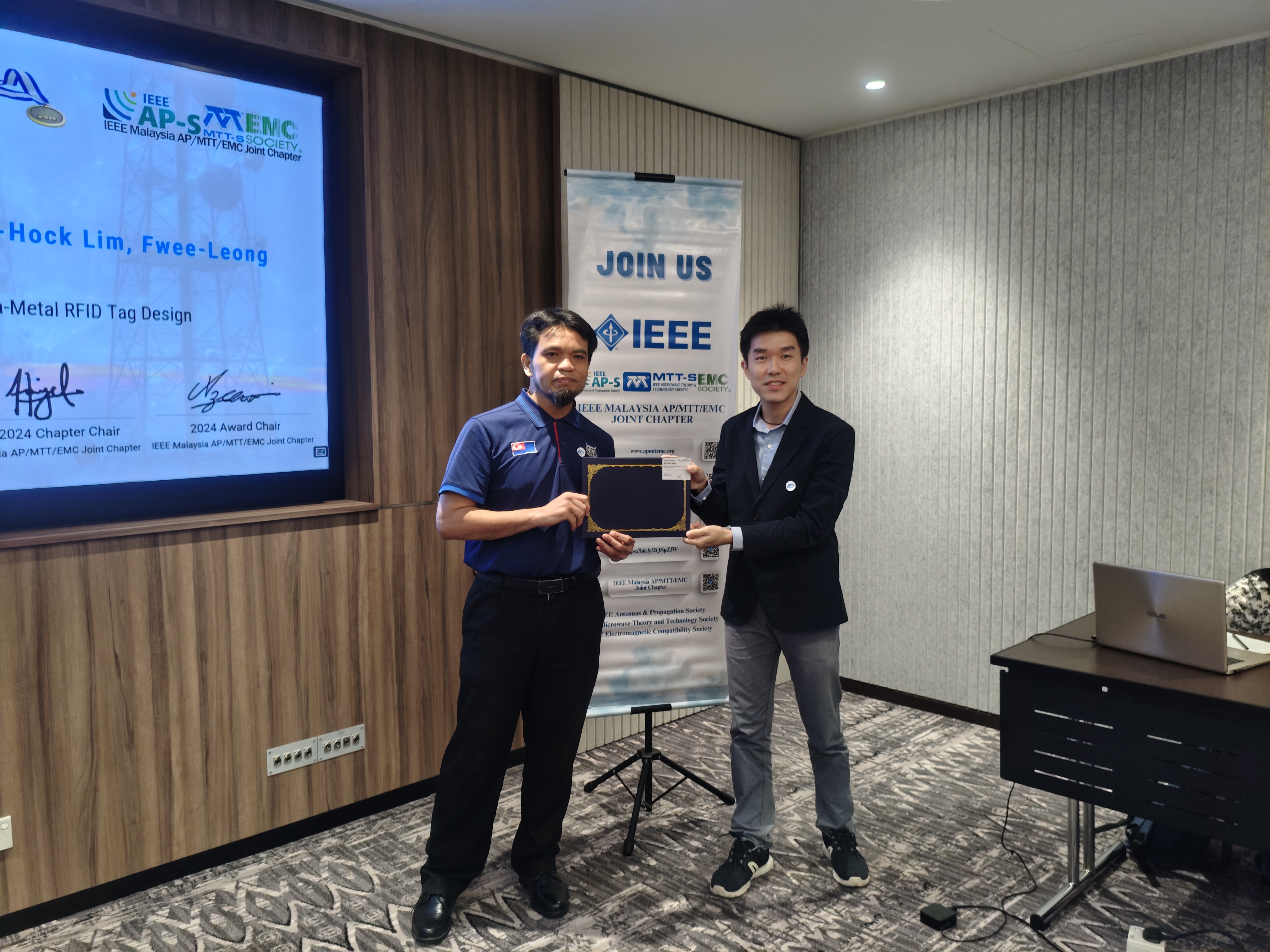
Congratulations to Dr Lee Yong Hong’s team from Lee Kong Chian Faculty of Engineering and Science (LKC FES) for winning the IEEE Malaysia AP/MTT/EMC Joint Chapter 2024 Best Paper Award. The team, led by Dr Lee, consisted of LKC FES former student Tan Jiun Ian and researchers Dr Bong Fwee Leong, Prof Ts Dr Lim Eng Hock, and Ir Prof Dr Chung Boon Kuan. Their groundbreaking research, featured in the IEEE Journal of Radio Frequency Identification (JRFID), sets a new benchmark for compact omnidirectional antenna design.
The award was presented at the 2025 IEEE Malaysia AP/MTT/EMC Joint Chapter Annual General Meeting (AGM), held on 18 January 2025 at the Kuala Lumpur Convention Centre (KLCC).

Dr Lee (right) receiving his certificate
The award-winning research paper, titled “A low-profile top-loaded monopole antenna for on-metal RFID tag design”, addressed the size limitations of omnidirectional antennas typically used in RFID applications. Currently, very few RFID tags are capable of providing a monopole-like radiation pattern when used on metal. Those that offer good omnidirectional performance typically have a high profile (thickness), which stems from the inherent fundamental limitations of small, compact antennas. The research achieved a significant breakthrough by developing a monopole antenna with a profile less than one-hundredth of the operating wavelength, while maintaining comparable performance to conventional quarter-wave monopoles. This novel antenna design offer immense potential for applications in advanced 5G MIMO systems, RFID and wireless communication networks, particularly in environments where compact solutions are preferred.
Commenting on the significance of this recognition, Dr Lee said, “Omnidirectional antennas like monopole antennas are highly preferred due to their ability to provide consistent signals in all directions. These antennas are widely used not only in RFID applications but also in a wide range of other fields such as home Wi-Fi, and mobile communications, to name a few. In this project, we overcame the fundamental limitations on antenna size and successfully developed a highly compact antenna with excellent omnidirectional radiation performance. This breakthrough could be a game changer for RFID and 5G systems. The design was also notably acknowledged by the guest editors of IEEE JRFID in their special issue called “Advanced Antennas for Radio Frequency Identification (RFID) Systems.”
Dr Lee also expressed his gratitude to UTAR for supporting the research through the UTAR Research Fund. He further highlighted ongoing collaborations with both local and international industry partners in designing compact antennas for various applications.
This recognition underscores UTAR’s commitment to fostering innovative research and advancing technological solutions on a global scale.
To read about the winning paper, click here.
© 2025 UNIVERSITI TUNKU ABDUL RAHMAN DU012(A).
Wholly owned by UTAR Education Foundation (200201010564(578227-M)) LEGAL STATEMENT TERM OF USAGE PRIVACY NOTICE